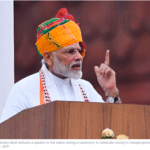The Attorney General informed the Islamabad High Court (IHC) on Wednesday that the federal government had not authorized any agency, including the Inter-Services Intelligence (ISI) and the Federal Investigation Agency (FIA), to conduct audio tapping. AGP Mansoor Usman Awan, representing the Prime Minister’s Office (PMO), unequivocally stated that any entity engaged in such recordings was doing so unlawfully, submitting a comprehensive report to this effect.
The case unfolded as the IHC heard a petition initiated by Bushra Bibi, the spouse of former Prime Minister Imran Khan, seeking legal action over a leaked conversation purportedly involving her, her lawyer, and PTI leader Latif Khosa. Justice Babar Sattar, presiding over the single-member bench, emphasized that it was now the federal government’s responsibility to determine the course of action in the case. He warned that if the government did not disclose the identity of the party tapping the calls, assistance might be sought from national and international judicial bodies.
AGP Awan reiterated the PMO’s stance that no agency had been granted permission for audio tapping, and the FIA was actively reviewing the case to identify the entity responsible for the leaked conversation. He highlighted the need for access to IP addresses and underscored that any government agency conducting such recordings was acting unlawfully.
Regarding the role of the ISI, it was clarified that the intelligence agency sought reports from social media platforms to advance their investigations. The court also inquired about actions taken by the Pakistan Electronic Media Regulatory Authority (PEMRA) against TV channels that aired the audio leaks. PEMRA responded that private audio leaks could not be broadcast on TV channels and that the matter had been forwarded to PEMRA’s council of complaints for a decision.
During the hearing, the court addressed the balance between freedom of information and privacy. Senior lawyer Aitzaz Ahsan suggested the implementation of self-regulations, emphasizing the lack of adherence to the Constitution in the last 90 days.
The court directed the AGP to investigate whether the Intelligence Bureau (IB) had been given the authority to record private conversations. The next hearing prompted the Pakistan Tehreek-e-Insaf (PTI), FIA, and other parties to re-file their responses.
In a previous hearing, Justice Sattar had directed the FIA to investigate the initial release of the audio and ordered a copy of the application to be sent to the director general of the ISI, seeking a report on the audio’s release. Notices were also issued to the FIA and Pakistan Telecommunication Authority (PTA) to provide their responses to the case.
Advocate Latif Khosa argued that the leaked conversation between a lawyer and a client was privileged and should not be disclosed. Justice Sattar emphasized the need to investigate the source of the leak, expressing concern about the airing of private conversations on television channels.
The leaked audio clip, featuring Bushra Bibi and Khosa discussing grievances against Khan’s sisters, had circulated on social media, shedding light on internal family differences during the former prime minister’s incarceration.
As this legal saga unfolds, the IHC’s vigilant stance on privacy and the lawful conduct of investigations underscores the significance of addressing the balance between freedom of information and individual privacy in technological advancements.














